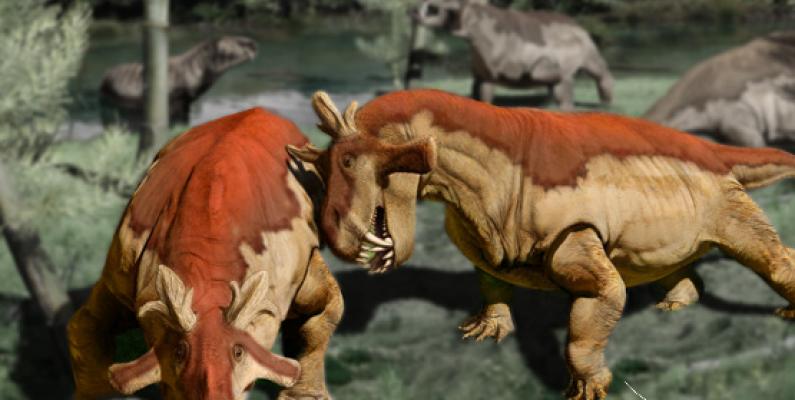
Permian [pur-mee-uh n] ExamplesWord Origin adjective
- Geology. noting or pertaining to a period of the Paleozoic Era occurring from about 280 to 230 million years ago and characterized by a profusion of amphibian species.
noun
- Geology. the Permian Period or System.
- Permic.
Origin of Permian First recorded in 1835–45; Perm + -ian Related formspost-Per·mi·an, adjectivepre-Per·mi·an, adjective Examples from the Web for permian Contemporary Examples of permian
I am today in Odessa, Texas, here to speak this afternoon at the University of Texas of the Permian Basin.
Tourist Attractions of West Texas
David Frum
November 1, 2012
Historical Examples of permian
Physically, the transition from the Permian to the Trias is easy.
The Story of the Earth and Man
J. W. Dawson
In the marls and sandstones of the Permian period there is also much gypsum.
The Story of the Earth and Man
J. W. Dawson
Still the Permian has some life features of its own, and we must now turn to these.
The Story of the Earth and Man
J. W. Dawson
The upper series is named the Permian, from the province of Perm in Russia.
William Harmon Norton
Proreptilia are represented by the Permian genera Eryops and Cricotus.
Ernst Haeckel
British Dictionary definitions for permian Permian adjective
- of, denoting, or formed in the last period of the Palaeozoic era, between the Carboniferous and Triassic periods, which lasted for 60 000 000 years
noun
- the Permian the Permian period or rock system
Word Origin for Permian C19: after Perm, Russia Word Origin and History for permian Permian
1841, “pertaining to the uppermost strata of the Paleozoic era,” named by British geologist Sir Roderick Impey Murchison (1792-1871) for the region of Perm in northwestern Russia, where rocks from this epoch are found.
permian in Science Permian [pûr′mē-ən]
- The seventh and last period of the Paleozoic Era, from about 286 to 245 million years ago. During the Permian Period the supercontinent Pangaea, comprising almost all of today’s landmasses, formed. Gymnosperms evolved, the first modern conifers appeared, and reptiles diversified. The Permian Period ended with the largest known mass extinction in the history of life. It wiped out nearly 90 percent of known marine life forms. See Chart at geologic time.
 Liberal Dictionary English Dictionary
Liberal Dictionary English Dictionary